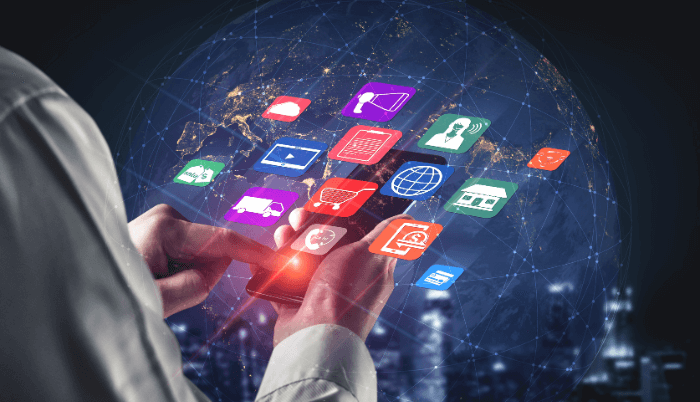Technology has become so ingrained in our daily lives that we hardly notice its presence. From the smartphone alarm that wakes us up to the smart thermostat that adjusts our home temperature while we sleep, technology quietly orchestrates countless moments throughout our day. This integration isn’t just about convenience—it fundamentally shapes how we work, learn, connect, and live.
Communication and Connectivity
The most profound impact of everyday technology lies in how it has transformed human connection. Video calls now bridge continents, allowing grandparents to read bedtime stories to their grandchildren thousands of miles away. Social media platforms keep us updated on friends’ lives in real time, while messaging apps enable instant communication that transcends time zones and geographical boundaries.
This connectivity extends beyond personal relationships to professional collaboration. Remote work has become viable because cloud-based platforms allow teams to share documents, host virtual meetings, and manage projects from anywhere with an internet connection. The pandemic demonstrated just how crucial these technologies have become—they kept businesses running, students learning, and families connected during unprecedented isolation.
Efficiency and Productivity
Modern technology serves as an invisible assistant, automating mundane tasks and streamlining complex processes. GPS navigation saves countless hours by calculating optimal routes and providing real-time traffic updates. Online banking eliminates trips to physical branches, allowing us to manage finances, pay bills, and transfer money instantly from our phones.
Smart home devices add another layer of efficiency. Programmable thermostats learn our schedules and adjust temperatures automatically, reducing energy consumption while maintaining comfort. Voice assistants can set reminders, control lighting, and even order groceries with simple voice commands. These seemingly small conveniences accumulate into significant time savings that can be redirected toward more meaningful activities.
Access to Information and Education
The democratization of information represents one of technology’s greatest achievements. Search engines provide us with instant access to the world’s knowledge, allowing us to research medical symptoms, acquire new skills, or satiate our random curiosity. Online educational platforms offer courses from prestigious universities to anyone with internet access, breaking down traditional barriers to learning.
This accessibility extends to professional development as well. Workers can acquire new skills through online tutorials, attend virtual conferences, and pursue certifications that advance their careers—all without leaving their homes or taking extended time off work. The ability to learn continuously has become essential in our rapidly evolving economy.
Entertainment and Leisure
Entertainment technology has evolved far beyond passive consumption. Streaming services provide personalized content recommendations based on viewing history, creating curated experiences that traditional television never could. Gaming platforms connect players worldwide, fostering communities around shared interests and enabling social interaction through play.
Digital photography and video editing tools have democratized creative expression, allowing anyone to produce professional-quality content using just a smartphone. Social media platforms provide instant audiences for creative work, enabling artists, musicians, and writers to build followings without traditional gatekeepers.
Healthcare and Well-being
Technology’s role in healthcare extends well beyond hospital equipment. Fitness trackers monitor daily activity levels, sleep patterns, and heart rates, providing insights that help users make informed decisions about their health. Meditation apps guide users through stress-reduction techniques, while mental health platforms offer counseling services to those who might otherwise lack access.
Telemedicine has made healthcare more accessible, particularly for those in rural areas or with mobility limitations. Patients can consult specialists, receive diagnoses, and even get prescriptions filled without leaving their homes. This technology proved invaluable during the pandemic and continues to expand access to quality healthcare.
The Seamless Integration That Matters Most
What makes everyday technology truly significant isn’t any single innovation, but rather how these tools work together to create a more connected, efficient, and informed society. The smartphone that serves as our camera, wallet, map, library, and communication device exemplifies this integration. It’s not just a phone—it’s a gateway to virtually every aspect of modern life.
This technological ecosystem continues evolving, with artificial intelligence and machine learning making our devices more intuitive and responsive to our needs. As technology becomes increasingly sophisticated, its ability to improve our daily lives grows exponentially, often in ways we don’t immediately recognize.
Technology’s true significance lies not in dramatic breakthroughs or headline-grabbing innovations, but in the innumerable small enhancements it brings to everyday moments. Whether it’s helping us stay connected with loved ones, learning new skills, managing our health, or simply finding the best route home, everyday technology has become indispensable to modern life—not because we can’t live without it, but because it enables us to live better.
FAQs
1. How has technology changed the way we communicate with others?
Technology has made communication instant, global, and multimedia-rich. We can now video chat with people across the world, share photos and videos in real-time, and maintain relationships that were impossible to sustain before. Social media and messaging apps have created new forms of social interaction that complement traditional face-to-face communication.
2. What are the main benefits of smart home technology?
Smart home technology offers increased convenience, energy efficiency, and security. Devices can learn your routines and automate tasks like adjusting temperature, controlling lighting, and managing security systems. This automation saves time and energy while providing greater control over your living environment.
3. How does everyday technology improve productivity?
Technology improves productivity by automating routine tasks, providing instant access to information, and enabling better organization. Tools like calendar apps, cloud storage, GPS navigation, and mobile banking eliminate time-consuming manual processes, allowing people to focus on more important activities.
4. What role does technology play in modern healthcare?
Technology makes healthcare more accessible and personalized through telemedicine, fitness tracking, health monitoring apps, and mental health platforms. These tools enable preventive care, remote consultations, and continuous health monitoring that can lead to earlier detection of health issues.
5. Why is access to information considered so important in modern technology?
Access to information empowers people to make better decisions, learn new skills, and solve problems independently. Search engines and educational platforms have democratized learning, breaking down traditional barriers and enabling continuous personal and professional development regardless of location or economic status.




